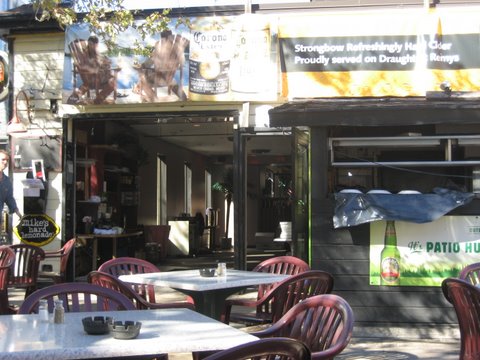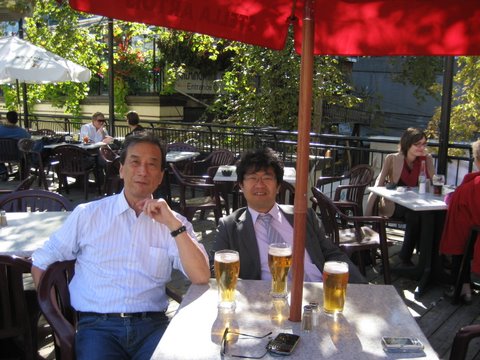I reported about the Global Entrepreneurship Week (GEW) several times last year (Ref.1). This year, the event is being held from November 15th to 20th and 100 countries from all over the world participate. A variety of GEW events will be held in Japan, too.
My home institution, GRIPS, collaborated with Nikkei Newspaper to focus on Design Thinking. On Tuesday, November 16th we invited young professionals with the entrepreneural spirit who were working actively at places such as TEDxTokyo, D-Lab Japan (in Japanese) , See-D, Soket, and Kopernik (in Japanese) to gather at GRIPS in the for a practical Workshop. The event started at 7pm and all participants quite enjoyed it for 3 hours.
The guests included many young, hot ‘role models’ of entrepreneurs such as Mr. Kota Matsuda (in Japanese), current member of the House of Councilors and the founder of Tully’s Coffee, Japan (in Japanese), Mr. Kohei Nishiyama of Imaginative Life (cuusoo seikatsu) and Elephant Design, and Mr. Magnus Jonson.
Other events for this weak are planned and organized by the initiatives of Impact Japan.
These activities are part of an ongoing process ? a 24hours a day, 365days a year of effort - of connecting the activities of young innovators, of people who’s creative thoughts and actions drive society into new directions. This conference introduces them to worlds beyond Japan or their native land, expanding their networks and perspectives. Although the internet is a strong connective tool, it is just as important, if not more, to share time and space with others who pursue common values and dreams. The internet in combination with these conferences expand possibility of expanding in multiple orders, not just additional ones.
I ask you to support them. I ask that you help to cultivate future paths for youths. They are the fundamental structure and basis for the future of our Nation.
By the way, the communication tool during this event was broken English. There were no interpreters. Everyone did a splendid job in making themselves understood. Yes, you can do it! You were all truly wonderful.
As Serbian IT entrepreneur, Sinisa Rudan put it: "We are taught to take business rationally, to focus on profit. However, I suggest that if you feel a particular project is good for you ? even a non-commercial one ? take it, because it will advance your skills or expand your network, possibly bringing you other, more-profitable projects. Choose projects you love. Do your business from the heart, and business comes to you!" (Quote from GEW website, http://www.unleashingideas.org/)







